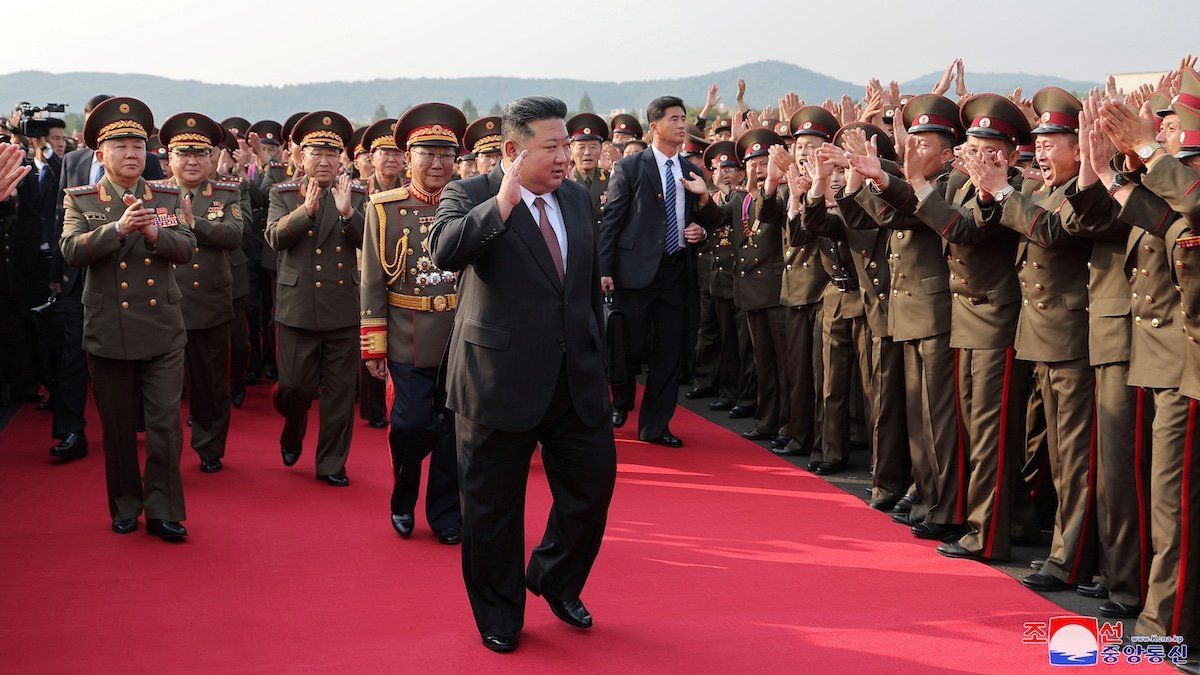South Korea’s military announced Monday it had detected North Korea preparing to destroy roads connecting the two countries, the latest in a series of steps advancing Supreme Leader Kim Jong Un’s renunciation of peaceful reunification. Pyongyang also threatened to attack the South over alleged drone incursions this weekend and announced it would begin fortifying its side of the border last week.
Kim’s sister and close ally Kim Yo Jong also flung invective at Seoul’s troops on Monday, calling them “mongrels tamed by Yankees” and saying that their “master” — the US — must be held accountable for the alleged drone flights over the Hermit Kingdom. On Friday, South Korea’s defense minister denied responsibility for the drones, which allegedly dropped anti-regime leaflets, and later said “we cannot verify the truth behind North Korea’s claims.” It is highly likely that any drones were flown by private organizations that attempt to agitate in North Korea and have distributed leaflets by balloon in the past.
All in all, Pyongyang’s provocations — which, lest we forget, include deploying troops to fight for Russia in Ukraine — are part of a pattern of escalation dating back to at least the fall of 2023, says Eurasia Group regional analyst Jeremy Chan. Whether it continues may depend heavily on the results of the US election, as “North Korea is trying to build out leverage it could bargain away in a potential future Trump administration while retaining its nuclear deterrent,” says Chan.
Trump’s advisors have signaled an openness to accepting a freeze in North Korea’s nuclear program – rather than full denuclearization – in return for sanctions relief. “But a freeze probably isn’t going to be enough for Trump,” says Chan. “If Kim could also agree to a moratorium on developing North Korea’s nuclear-powered submarines, military spy satellites, and long-range missiles, however, that could give enough of a win to Trump to sell to the American people.”
